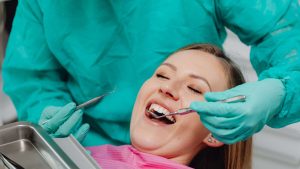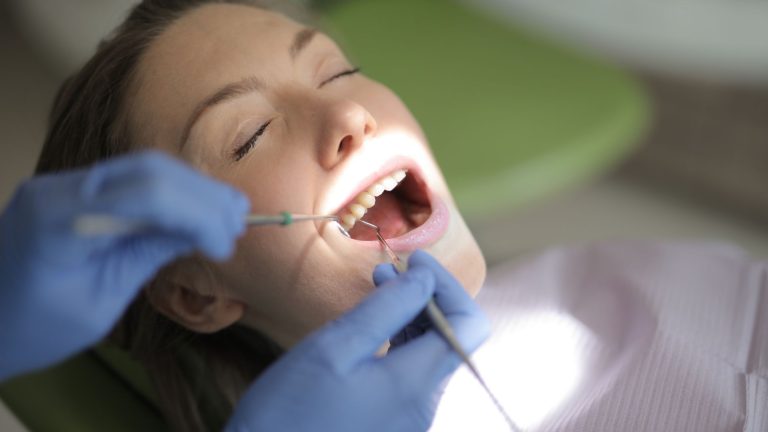I’ll be honest: I didn’t take my first dental emergency seriously enough. It wasn’t until I found myself clutching a tooth in my hand, wondering if I could still save it, that I realized I needed a crash course in handling dental mishaps.
Whether it’s a knock-out tooth, a sudden unbearable toothache, or a sudden mouth injury, having a plan in place is crucial.
Believe me, knowing what to do when you have a dental emergency could save you more than just your smile—it could save your tooth.
So, if you’re faced with a dental crisis, here’s what you really need to know—straight from the experience of someone who’s seen it all.
What to Do When You Have a Dental Emergency?

Dental emergencies can feel like they come out of nowhere—one moment, you’re smiling, and the next, you’re clutching a painful tooth.
Here’s the deal: the first thing to do is stay calm. Easier said than done, I know, but keeping your head will help you make the best decisions.
Once you’ve taken a deep breath and assessed the situation, it’s time to act. Is there excessive bleeding? A knocked-out tooth? Severe pain or signs of infection like swelling or pus? These will help you determine the next steps.
Also Read: How to Overcome Your Fear of the Dentist?
How Can You Manage Pain and Swelling Before You Get to an Emergency Dentist?

Dental pain can be excruciating, especially when it comes unexpectedly. Whether it’s a toothache or an injury, managing the pain while you await care is essential. Here’s how to handle the discomfort until you can get to a professional.
- Cold Compress: Applying a cold compress to the outside of your cheek can significantly reduce both swelling and pain. Just make sure to not apply it directly to your skin to avoid frostbite.
- Warm Water Rinse: Gently rinse your mouth with warm water to clean the area. Avoid using very hot or cold water, as it can worsen sensitivity.
- Over-the-Counter Pain Relievers: Medications like acetaminophen or ibuprofen are your best bet. Avoid aspirin if there’s bleeding, as it can thin the blood.
If you’re in Maple Ridge, don’t hesitate to call an emergency dentist in Maple Ridge for advice or to schedule an urgent visit.
What Should You Do If a Tooth Is Knocked Out?
A knocked-out tooth is one of the most common dental emergencies, and acting fast is key. Time is of the essence here—if you act quickly enough, there’s a good chance the tooth can be saved.
- Pick It Up by the Crown: Don’t touch the root! Hold the tooth by the crown (the top part that’s visible when it’s in your mouth) to avoid damaging it further.
- Clean Gently: If the tooth is dirty, rinse it gently with water. Don’t scrub or use any soap.
- Reinsert It If Possible: Try to place the tooth back into its socket as soon as you can. If it fits, gently bite down on some gauze to hold it in place.
- Store It: If reinsertion isn’t possible, store the tooth in a container of milk, saline solution, or a special tooth preservation product until you can get to the dentist.
What if Your Tooth Is Chipped or Broken?

It’s a nightmare scenario: you’re eating, you bite down, and suddenly, a tooth breaks. Now what?
- Rinse and Protect: Clean the area with warm water, and if there’s bleeding, apply some gauze. If a chunk of the tooth has broken off, save it and bring it to your dentist.
- Cold Compress for Swelling: Apply a cold compress to your face to reduce swelling and pain.
- Avoid Chewing: Don’t chew on the side of the broken tooth until you can get dental care. It’s easy to irritate the exposed nerve, which will only make things worse.
When Should You Seek Immediate Emergency Care for Your Dental Issue?

While some dental emergencies can wait for a dentist’s office hours, others need immediate attention. Here’s when you need to head straight to the emergency room or an urgent care center:
- Severe, Uncontrolled Pain: If pain is unbearable and medication doesn’t help, get help immediately.
- Swelling Spreading to Face or Neck: Swelling that spreads quickly or involves the face and neck could indicate an infection. It needs immediate attention.
- Difficulty Breathing or Swallowing: If you’re struggling to breathe or swallow due to a dental issue, don’t hesitate—seek help right away.
- Signs of Infection: Fever, pus, or intense swelling are red flags that an infection may be spreading. You need professional care ASAP.
Also Read: Top Questions to Ask Your Dentist
Frequently Asked Questions About Dental Emergencies
1. What if I can’t reach my dentist during a dental emergency?
If your dentist isn’t available, don’t panic. You can go to an urgent care facility or the emergency room. In Maple Ridge, there are several emergency clinics that can provide immediate care for dental issues. Make sure to contact them first to explain your situation.
2. Is it okay to use home remedies for a dental emergency?
While home remedies like clove oil might seem appealing, avoid using them for open wounds or exposed nerves. Home treatments often mask the symptoms but don’t solve the problem. Always seek professional help as soon as you can.
3. How can I prevent dental emergencies?
The best way to prevent dental emergencies is by maintaining regular dental check-ups, wearing mouthguards if you play contact sports, and avoiding habits like grinding your teeth. And, of course, always practice good oral hygiene!
Time to Wrap Up: Stay Calm, Act Fast, and Save Your Smile!
Dental emergencies are never fun, but with the right preparation, you can handle them like a pro. Remember, when it comes to your teeth, time matters.
From knowing how to manage pain to understanding how to save a knocked-out tooth, acting quickly is key.
And remember, whether you’re at home, work, or on vacation, don’t hesitate to call your emergency dentist.
Whether you’re in Maple Ridge or anywhere else, having a plan can make all the difference. So, keep calm, take action, and protect that beautiful smile!

